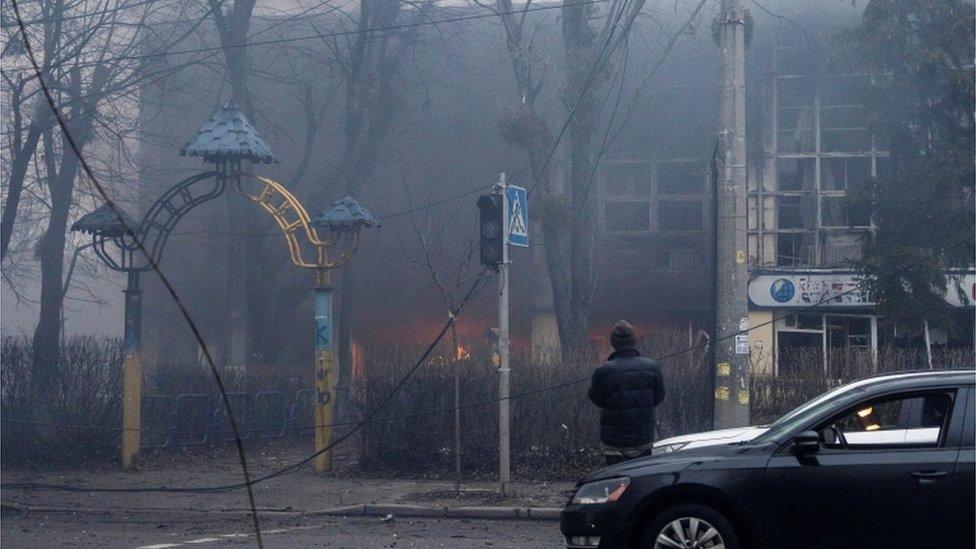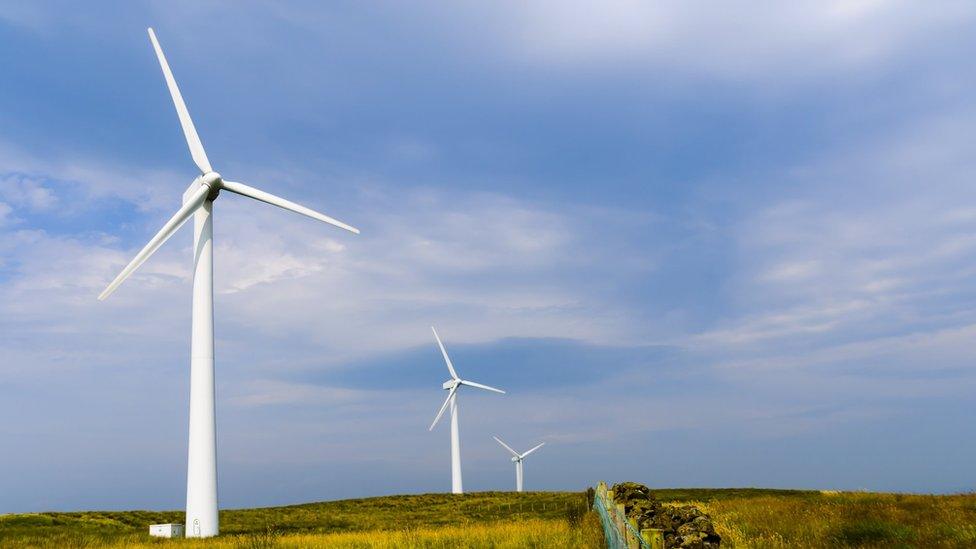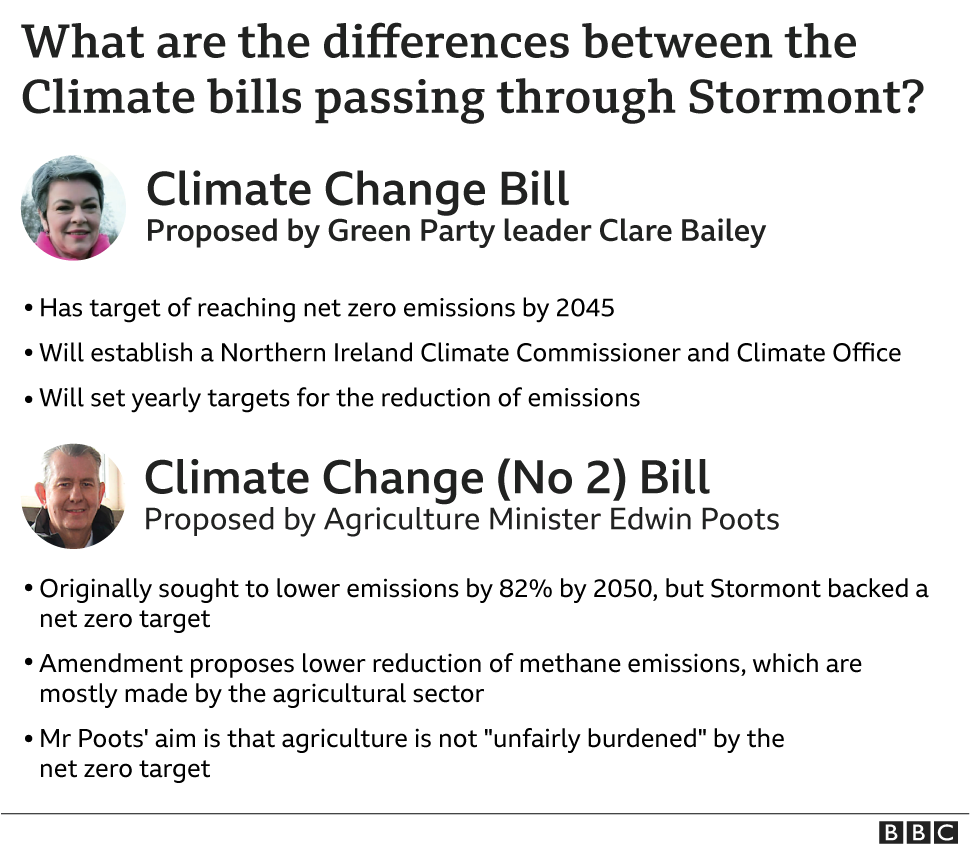Ukraine: Warning Russian invasion could impact NI food imports
- Published

Russian forces have hit targets in the Ukrainian capital Kyiv
People "must be prepared" for the possibility of food shortages because of the war in Ukraine, Stormont's agriculture minister has warned.
Edwin Poots said people needed to "recognise and realise the issues involved".
He added that he had asked the UK Agriculture and Environment Secretary George Eustice for a meeting on the matter.
Mr Poots said Northern Ireland imports cereals from Ukraine.
Russia's invasion of Ukraine is in its sixth day and the Russian army is continuing its advance on Kyiv, with satellite images spotting an armoured convoy about 40 miles long.
Speaking in the Northern Ireland Assembly on Tuesday, Mr Poots said society "cannot tolerate Russia's behaviour" but warned it would have consequences for food production.
"We really do need to be prepared for what might come if this turns into a prolonged war in Russia and Ukraine," he added.
Separately, a climate change bill proposed by Mr Poots has completed another stage in the assembly.

Two new pieces of legislation on climate changes are being debated at Stormont
Stormont politicians voted on a number of amendments to the Climate Change (No2) Bill.
It is one of two bills being considered by the assembly; both have the same aim to reach net zero emissions, but with different time frames.
A total of 70 amendments to the bill were voted on by politicians in the assembly.
An amendment limiting the reduction of methane to 46% by 2050 passed on Monday.
The bill brought forward by Mr Poots had an original target of lowering emissions by 82% by 2050, but Stormont backed a target of net zero.
The minister had argued that the net zero target was "not achievable".
The bill will now face scrutiny by the speaker before moving to the final stage and will not become legislation until it receives Royal assent.
Another bill, Climate Change No1 Bill, proposed by Green Party leader Clare Bailey, has a target of net zero by 2045, and is currently at an earlier stage in the legislative process.


Change is inevitable
By Louise Cullen, Agriculture and Environment Correspondent
Climate change bills are like buses in Northern Ireland - you wait ages for one, then two come along at once.
But with time running out in the assembly's mandate, the question is whether either of them will get you to the destination on time. It's certainly not an express service.
Clare Bailey's No1 Private Member's Bill was first to arrive, with its aim of net zero by 2045 - going further than the UK's Climate Change Committee (CCC) assessed was possible for Northern Ireland.
Then, Edwin Poots' No2 bill pulled up as well, taking the CCC's recommendation of 82% by 2050 as an achievable target.
No2 is now in pole position - albeit with a revised aim of net zero by 2050, passed during the first consideration stage.
As agriculture and environment minister, Mr Poots has two portfolios that would seem to be diametrically opposed.
But both he and the farming community have consistently said agriculture is part of the solution to environment problems.
Others would perhaps say it has been a major cause. In either case, change is inevitable and the minister has been clear that business as usual is no longer an option.
No1 bill is up for consideration next week - after all these amendments to No2, there aren't really too many differences between the bills, so its road may be a little less rocky.
But with further to go, time is not on its side for reaching the finish line.
